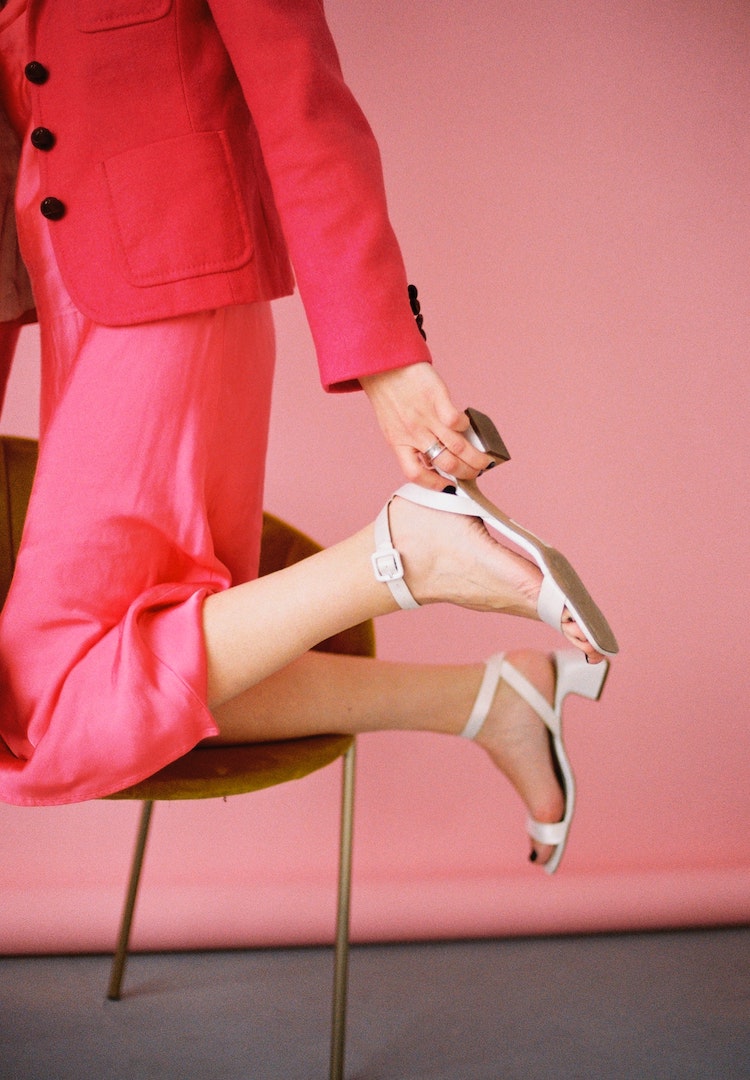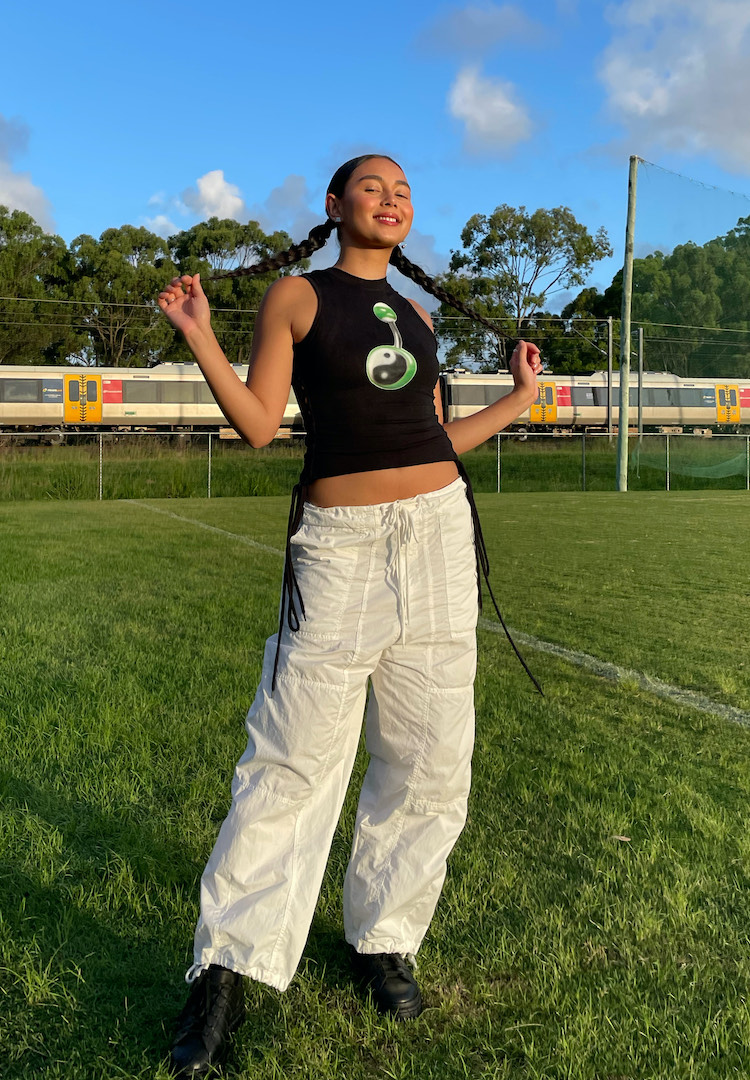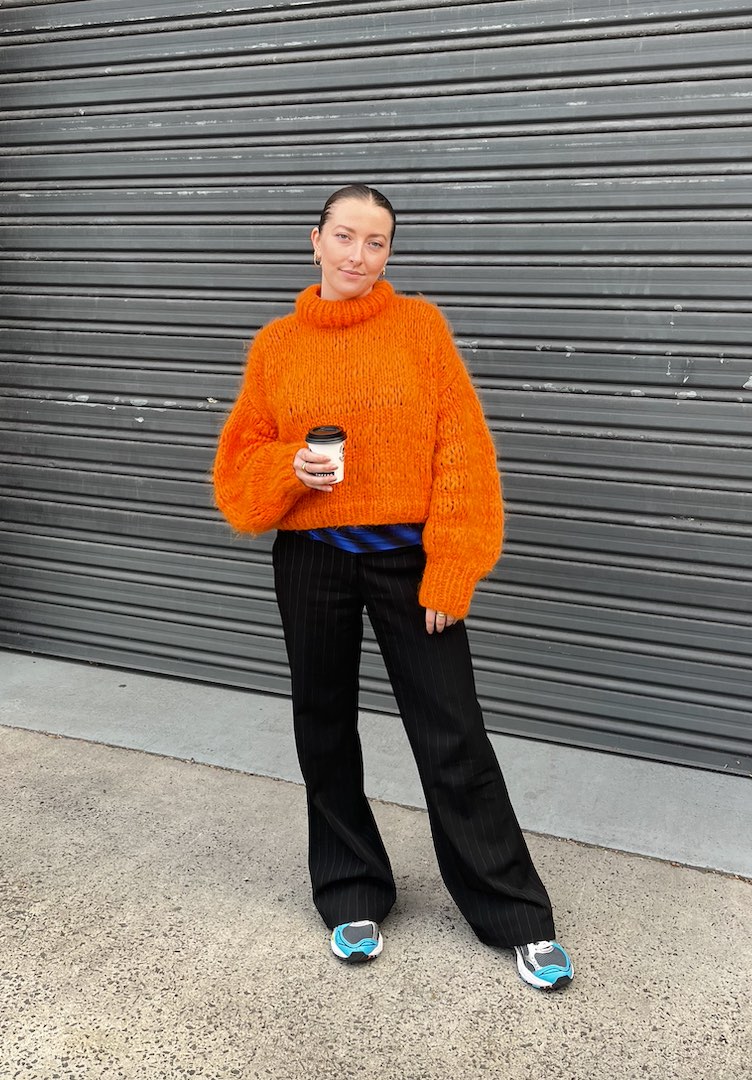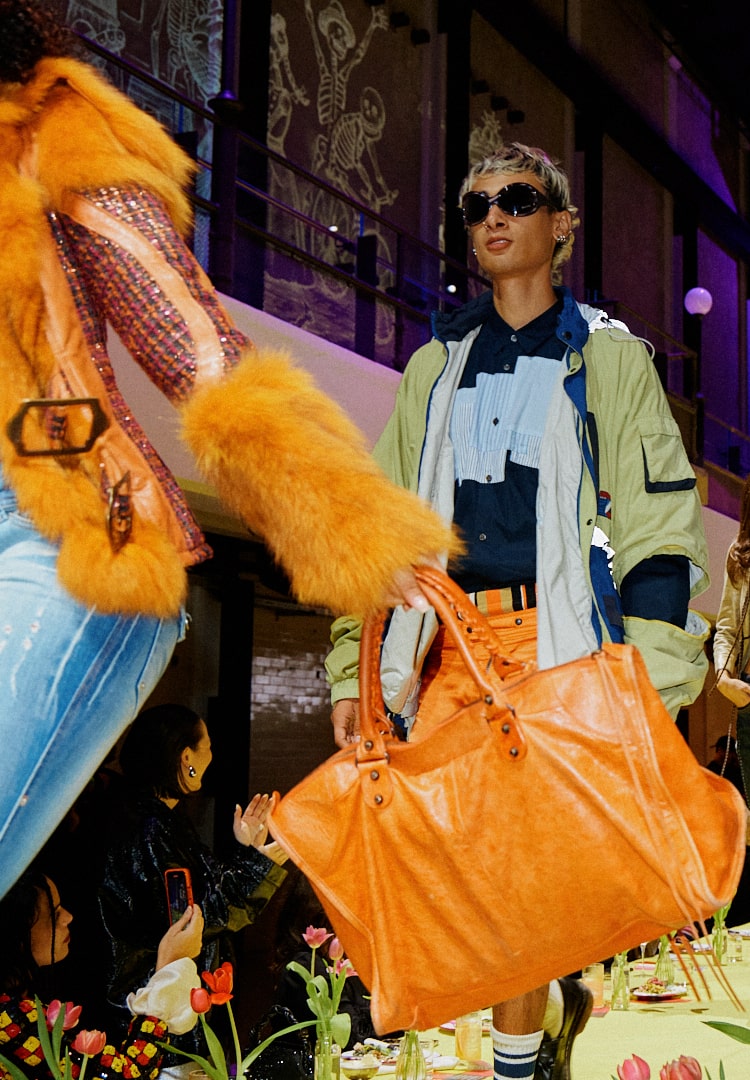How exactly does our clothing impact our mood? A psychologist weighs in
Words by Gabrielle O’Hagan
It’s more than just an outfit.
It probably goes without saying, but the clothes we wear can be an expression (either consciously or subconsciously) of how we’re feeling. I don’t know about you, but I tend to make my outfit choices based on the kind of mood I’m in. Ready to take on the world? Hair back, activewear on. Excited for a date night? Something cute, obviously. In need of comfort? Yep, sweats it is.
But this can work in the reverse too. Have you ever noticed your entire mood change based on which clothes you pull out from your wardrobe? You might be feeling kind of blue, until you put on your bright orange mohair knit and a pair of dangly gold earrings.
For more fashion news, shoots and features, head to our Fashion section.
Perhaps you didn’t get much sleep one night, but you shrug on your favourite vintage blazer the next morning and find yourself feeling more alert and focused. Or maybe you were having a particularly bad hair day, and all it takes is the right striped shirt and tailored pant combo to make you feel presentable.
Your fashion choices can affect your thoughts, feelings and behaviours. As a writer for a fashion magazine, this might not mean much coming from me. But the concept of ‘dopamine dressing’, which involves choosing colours, fabrics and accessories that make you feel your best and intentionally lift your spirits, is well researched and grounded in social psychology.
You don’t have to take my word for it. Take the word of Michelle Pal, a clinical psychologist who has studied the relationship between fashion and mood.
Is there a link between fashion and mood?
According to Michelle, there is a reciprocal relationship between the clothes we wear and how we feel. However, this often plays out in such small ways that it can sometimes be overlooked.
“We know that our mood can influence our fashion choices for the day, as we often dress in ways to match our mood,” she says. “Our self-care or little habits, like dressing up or putting on makeup, tend to be one of the first things to drop off when feeling stressed or depressed.”
But this goes both ways. Michelle says that the choices we make about our wardrobe and our outfits can have a real impact on our emotional state. “Fashion psychology researchers have termed this relationship ‘enclothed cognition’ – which refers to the influence that clothes have on the psychology of the person wearing them,” she explains.
So how can my clothes influence my psychological state?
Fashion can be as detailed and diverse as our personalities, so the way it affects our mood can be equally as complicated. But it often boils down to three main things: colour, materials and style.
The impact of colour on our mental state is well documented. Colours can evoke a range of emotions. They can make us more cheerful, alert, anxious or relaxed (to name a few), so it makes sense that the colour of our clothes influences how we feel too. “Different colours can have different effects on the brain. For example, red tends to be the most stimulating colour and has been found to improve performance on detail oriented-tasks,” Michelle says.
The fabric of our clothing is also important. It might seem obvious, but if you’re wearing soft, comfortable garments, you’re much more likely to be in a positive mood. “You have probably noticed if you have ever worn a very cheap fabric, some of them may actually itch your skin or feel uncomfortable or hot,” she says. “We know well-fitting, flattering, and comfortable materials are best for mood.”
Although style is unique to each person, certain looks can influence how we perceive ourselves and others. “Studies show that when given a doctor’s lab coat to wear, people will perform better on attention-related tasks; people who wear suits tend to feel more powerful and be better negotiators; and when someone wears athletic wear they are more likely to exercise,” Michelle tells me.
Can this vary from person to person?
The short answer is yes. People are as different and diverse as their outfit choices, and so a certain colour, style or fabric won’t affect everyone’s state of mind in the exact same way. Michelle’s advice is to observe how certain clothes and accessories influence the way you think and feel throughout the day.
“I would encourage each person to be in tune and pay attention to how they personally feel when wearing certain clothes,” she suggests. “Although research shows wearing suits can make someone feel more powerful and competent, for some people it could make them feel stuffy, uptight and uncomfortable… be most mindful of how you personally feel as you may be one of the exceptions to the rule.”
What impact can fashion have on our day-to-day lives?
Anything that affects our mood can be a powerful tool. “[Because] what we wear can influence how we think and behave… our outfit for the day could be a major influence on how well we concentrate, communicate, perform, or interact with others,” Michelle says.
This means that fashion can potentially affect our personal and professional lives. Think about it – if you dress in a way that boosts focus and drive, you could end up performing better at work. Similarly, wearing clothes that make you feel happy or relaxed on the weekends could result in more positive interactions with your friends and family.
“Being aware of the psychology behind our fashion choices is the first step… wear clothes that align with your values or the attitude you want to have,” Michelle suggests. “[Consider] whether you are aiming to lift your mood, perform better at work, impress for a first date, or to create a certain energy (whether creative, sexy, powerful, serious) and [then] dress to suit that.
“Don’t let a down or stressed mood dictate your clothing choices and have you choose something that won’t help you shine, whatever your tasks are for the day,” Michelle says. “Try to dress intentionally.”
For more on the link between fashion and mood, try this.













